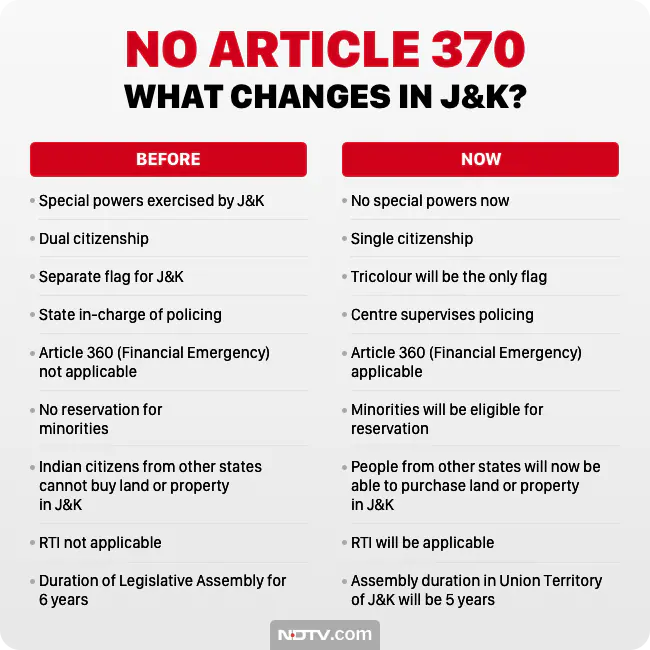Powers and Role of New J&K Assembly Post-2019
Why in the news?
The first phase of Jammu and Kashmir Assembly elections, the first since the abrogation of Article 370 and state reorganisation in 2019, is scheduled to begin.
About the Constitutional Changes Post-2019:
- The Jammu and Kashmir Reorganisation Act of 2019 redefined the region, creating the Union Territories (UTs) of Ladakh (without a legislature) and Jammu and Kashmir (with a legislature).
- The new Jammu and Kashmir Assembly will be significantly different from the pre-2019 Assemblies due to the removal of statehood and abrogation of Article 370.
Assembly’s Powers and Limitations:
- The J&K Assembly can legislate on matters from the State List, excluding “Public Order” and “Police”, which remain under the Lieutenant Governor (LG).
- Financial Bills or amendments need the LG’s recommendation to be introduced in the Assembly, reflecting the central government’s control over policy decisions with financial implications.
Lieutenant Governor’s Authority:
- The LG has significant power, controlling public order, police, bureaucracy, and the Anti-Corruption Bureau.
- The LG can act at his discretion on matters outside the Assembly’s purview and is not legally required to reveal advice given by ministers.
Jammu & Kashmir Reservation (Amendment) Bill, 2023:
- Amends Section 2 of the Jammu and Kashmir Reservation Act, 2004.
- Provides reservation in jobs and education to SCs, STs, and socially/educationally backward classes.
- Changes the term “weak and underprivileged classes (social castes)” to “other backward classes.”
- Amends the 2019 Act to represent Kashmiri Migrants and PoK displaced persons in the Assembly.
- Nominates two Kashmiri migrants (one woman) and one PoK displaced person.
- Increases total Assembly seats from 107 to 114, with 7 SC and 9 ST seats.
- 24 Assembly seats remain vacant for PoK until occupation ends.
Sources Referred:
PIB, The Hindu, Indian Express, Hindustan Times




